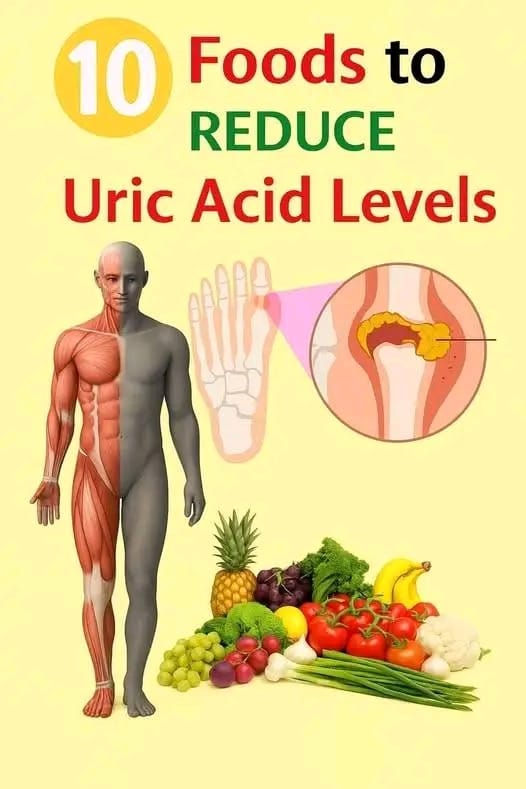4. Bananas
Bananas are low in purines and high in potassium, which is essential for kidney function and helps the body excrete uric acid efficiently. Potassium also helps maintain the acid-base balance in the body, preventing crystal formation in the joints.
5. Low-Fat Dairy Products
Milk, yogurt, and cheese (preferably low-fat) contain casein and lactalbumin—proteins that promote uric acid excretion. In addition, low-fat dairy is a good source of calcium and vitamin D, both of which may play a role in reducing the risk of gout and supporting bone health.
6. Whole Grains
Whole grains such as brown rice, oats, quinoa, and barley are fiber-rich foods that aid digestion and assist in the removal of waste products, including uric acid. Unlike refined grains, whole grains don’t spike insulin levels, which can indirectly affect uric acid balance.
7. Leafy Green Vegetables
Greens like spinach, kale, arugula, and lettuce are packed with vitamins A, C, and K, as well as folate and fiber. They have a low purine content and help detoxify the liver and kidneys. Antioxidants in leafy greens can also help reduce systemic inflammation, supporting healthier joints.
8. Berries (Strawberries, Blueberries, Raspberries)
Berries are bursting with vitamin C and polyphenols that help lower inflammation and combat oxidative stress. They also support immune function and may reduce the frequency of joint pain or swelling associated with high uric acid.
9. Ginger
Ginger is a natural anti-inflammatory root that helps reduce uric acid levels and alleviate gout symptoms. Whether you drink it as tea, include it in meals, or consume it raw, ginger promotes better digestion and enhances the kidneys’ ability to excrete toxins, including uric acid.
10. Water
While not a food, water is the most essential component in managing uric acid levels. Staying well-hydrated helps your kidneys flush out uric acid more effectively. Aim for 8–10 glasses of water per day, more if you’re physically active or live in a hot climate.
✅ Conclusion: Eat Smart, Live Pain-Free
Managing uric acid levels naturally involves both limiting high-purine foods and supporting your body’s ability to eliminate waste. Incorporating the foods listed above can significantly lower your risk of gout and related conditions. Remember:
Choose whole, unprocessed foods.
Stay hydrated.
Reduce intake of red meat, alcohol, and sugary drinks.
For best results, consult with a healthcare provider or nutritionist, especially if you have a history of gout or kidney issues. By making thoughtful dietary changes, you’re not just lowering your uric acid—you’re investing in your long-term health and well-being.
